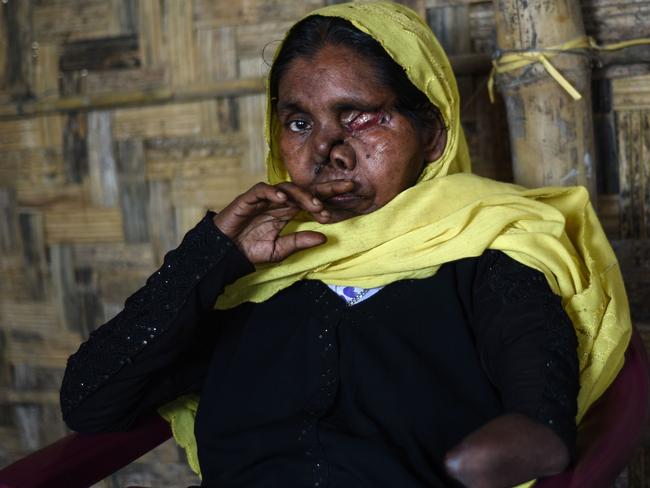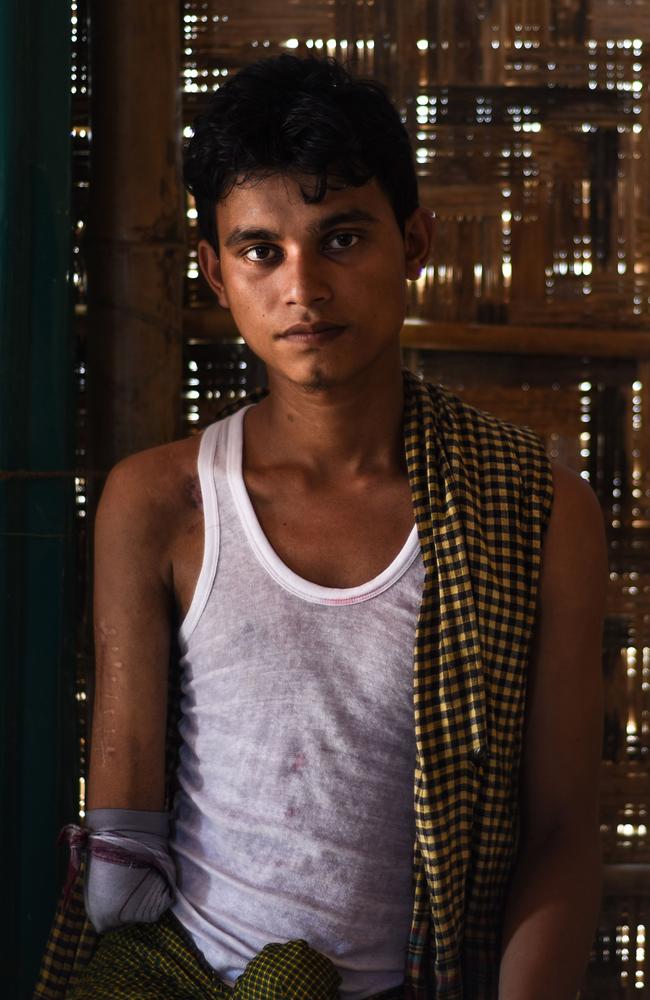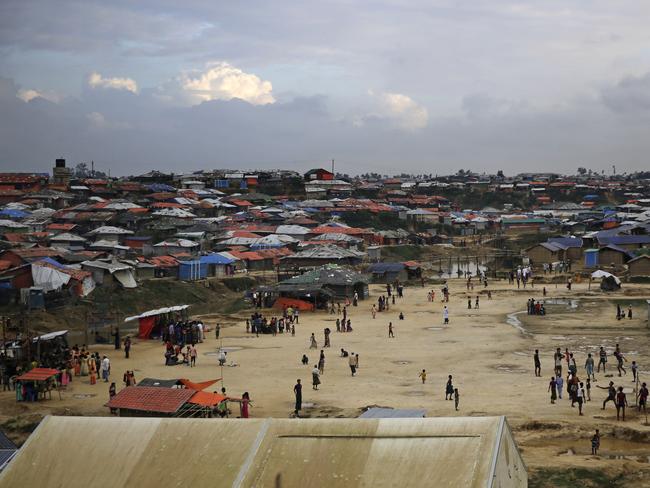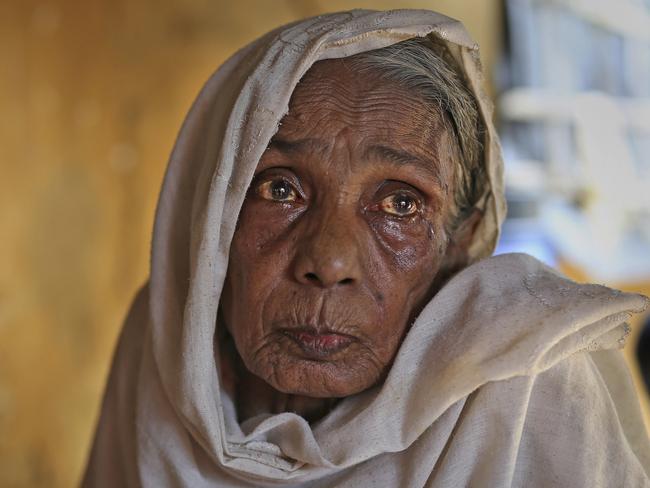A year since the horror in Myanmar, nothing’s changed
ONE year ago today, the lives of hundreds of thousands of people changed instantly. They’re still suffering and we’re still turning a blind eye.
IT’S been exactly one year since Rohingya Muslims began a mass exodus to escape persecution and violence in Myanmar. In the year since, little has changed.
As the international community continues to turn a blind eye against the world’s most persecuted people, Paul McPhun, the executive director of Médecins Sans Frontières Australia, says this lost generation is trapped in a cycle of suffering.
****
ONE year ago today, hundreds of thousands of Rohingya began fleeing horrific violence after the government of Myanmar launched military attacks against them.
More than 706,000 Rohingya refugees travelled on foot for days, sometimes weeks, seeking medical aid in neighbouring Bangladesh. Tragically, thousands of people lost their lives before being able to make the journey.
Read more: Who are the Rohingya and what is happening in Myanmar
Read more: Suu Kyi says committed to Rohingya return
Read more: Australian backpacker helps refugees
Now, twelve months on, the Rohingya remain trapped in a vicious cycle of suffering in Bangladesh, doubtful they will ever be able to return home safely.

Ismael, 14, who is currently living in the refugee camp in Bangladesh, crossed the border with his siblings. It took weeks before he was reunited with his parents at the Médecins Sans Frontières’ Kutupalong clinic.
Speaking to Médecins Sans Frontières (MSF) staff, Ismael reflected on how life dramatically changed, and what little hope he has for what lies ahead.
“In Burma, things were fine for us … But when we became older, the monks began torturing us, beating us, forcing us to pay bribes, and taking people away,” Ismael said.
“Then the war started, so we came here. We will not go back, only if they recognise the Rohingyas.
“If we return without citizenship, they will oppress us again. They will kill us.”
Sadly, Ismael’s story is not unique. It is representative of a population that has been persecuted, repressed and discriminated against for decades. In Myanmar, the Rohingya have had no citizenship, no freedom of movement, let alone access to basic health services, employment or education.
Meanwhile, Rohingya have no legal recognition as refugees in Bangladesh either, or in other neighbouring host countries.
Last year, MSF released findings from surveys conducted in the Bangladesh refugee settlements, which showed 6700 Rohingya, including at least 730 children, were estimated to have been shot, burnt or beaten to death in Myanmar in the first month of violence.
The survey offers the clearest indication yet of the widespread and indiscriminate nature of the violence forcing Rohingya to flee en masse, or remain and be killed.

The numbers of deaths are likely to be an underestimation, and don’t account for the families who never made it out of Myanmar.
This horrific violence should have shattered the long-term complacency of the international community who have turned a blind eye to the persecution of a whole people for decades. The crisis started long before last August. The responsibility of the international community to ensure humanitarian outcomes for those like Ismael is even more stark in the context of this long-term failure.
I fear for the Rohingya who are trapped in northern Rakhine state, Myanmar. Independent humanitarian agencies, including MSF, remain largely blocked from accessing the communities there. What’s more, the Rohingya remain stateless and without any legal protection, vulnerable to further violence and intimidation.
Meanwhile, in Bangladesh, the monsoon season has been in full swing since June, worsening already precarious living conditions. Ongoing rain and flooding is affecting shelter, water and sanitation, and ultimately the health of the refugees.
Services in the camp are unevenly distributed and clearly insufficient for the hundreds of thousands of people crammed together. The humanitarian response is hampered by restrictions on the provision of long-term or substantial aid, under the pretext that the Rohingya will soon be returning to Myanmar.

But any return must be safe, voluntary and dignified, which looks unlikely in the short term. The Rohingya are living in the same bamboo and plastic-sheeting shelters they built when they first arrived. Many have told our staff that they feel unsafe at night, with a lack of lighting in the camps, no locks on the doors, and the threat of sexual or physical violence.
MSF medics are treating patients for diarrhoeal diseases, respiratory tract infections and skin conditions — all directly linked to the slum-like living conditions.
It is completely unacceptable that the most basic needs of the population are still not met. It is seriously affecting their wellbeing and keeping them in a cycle of ongoing vulnerability.
Our teams also continue to provide mental healthcare, treating not only the trauma people experienced in Myanmar, but also the stressors associated with living in limbo.
By refusing to acknowledge the legal rights of Rohingya as refugees, or granting them any other legal status, intervening governments and organisations effectively perpetuate the discrimination the Rohingya experienced in Myanmar.

The international community must work in solidarity to provide humane and practical short-term solutions to improve the conditions in the camps. At the same time, there must be clear progress towards long-term recognition and protection of the Rohingya community.
The Rohingya crisis is far from over. It’s complicated to say the least. But it cannot be forgotten.
It must remain on the forefront of the international agenda. It’s time for neighbouring countries including Australia, to once and for all break this stigma and discrimination against what is the most acutely vulnerable refugee population today, so that people like Ismael can, at the very least, enjoy the right to safety, security and access to healthcare that are the foundation of any life worth living.
The international community, including the Australian government, must work together to support the Rohingya who remain displaced in devastating circumstances.
The Australian government, as a strongly influential regional power, must focus on supporting improved conditions in Bangladesh, while also securing legal recognition for the Rohingya, which is the only way to achieve a long-term resolution for this crisis.
Paul McPhun is the executive director of Médecins Sans Frontières Australia. Follow their work on Twitter and Facebook.



